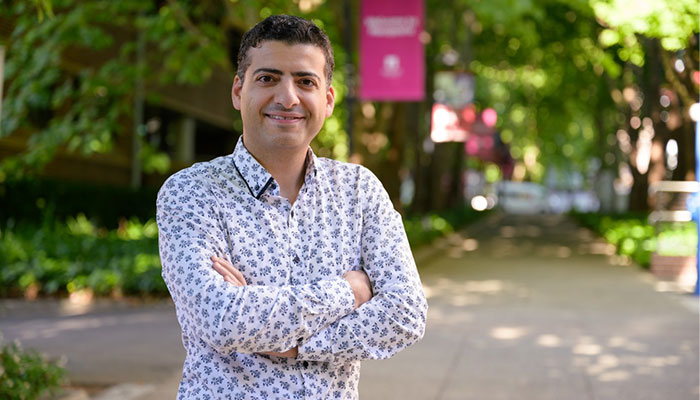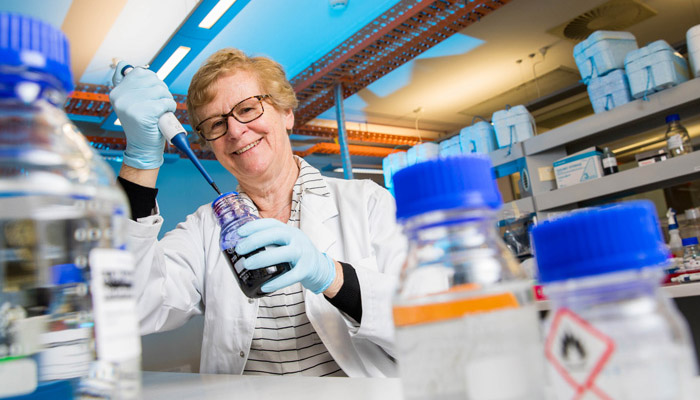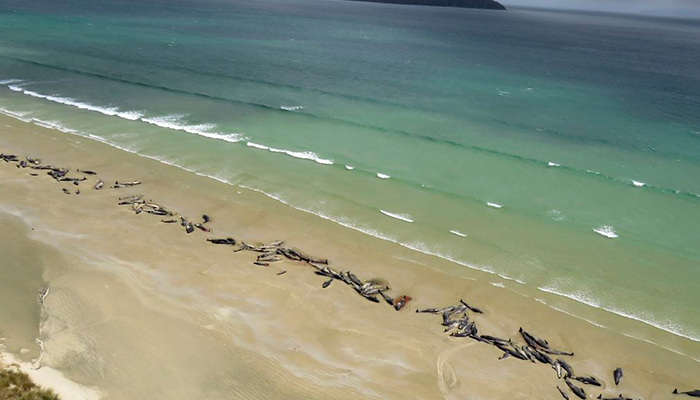Teacher: Dr Ali Lalbakhsh is a Macquarie University Research Fellow in the School of Engineering, and a sessional teacher at Macquarie University College.

Dr Ali Lalbakhsh, pictured, uses mindset growth to help students unleash their potential.
Groundwork: Dr Ali Lalbakhsh received his Bachelor of Science and Engineering and a Master of Science and Engineering (both with high distinction) in Iran in 2008 and 2011, respectively. Ali completed his Master of Research (High Distinction) in 2016 and his PhD in communication engineering at Macquarie University in 2020. Ali worked as a research engineer in astronomy and space exploration projects at CSIRO from 2016 to 2019.
Gold stars: Ali has also made the list of World's Top 2% Scientists in 2021 and 2020 and has been involved in securing more than $1.7 million in research funding and scholarships in communication engineering. Ali was a highly commended finalist in the 2022 Vice-Chancellor’s Learning and Teaching Awards (Student-nominated award) at Macquarie University, and received an Early Career Researcher Award in 2021, He also received the 2021 NSW Fresh Science Prize and took out first prize in an Institute of Electrical and Electronics Engineers Asia-Pacific Postgraduate Paper contest in 2018.
How Ali’s students describe him: Motivated, positive, inspiring.
What Ali says:
My ultimate goal as a teacher is to give my students confidence. I make sure my students are very comfortable in my class. If you manage to give your students the confidence to be themselves and remove any filter about silly questions, then you manage to bring their walls down. I share some of my education experience with them. I tell them, ‘I used to be in a class like you. And one of the silliest ideas of mine that caused many to laugh at me at that time led to a discovery in my area and something that I was awarded several times for.'
The idea that my classmates thought was silly was the design of a new type of antenna. When I was explaining this for the first time in my second masters they said: ‘It’s not possible.' But I continued working on that idea during my PhD and it became something that was very pioneering. It’s quite technical, but essentially I made very expensive satellite antenna technology affordable for ordinary people. I removed the most expensive component of microwave substrates from the antenna system and replaced it with low-cost smart metallic surfaces that are very cheap.
I work a lot on my teaching philosophy, which centres on mindset growth. I like supporting students to uncap their potential through open-ended group and individual activities in a safe and engaging environment. For me, every student has a story that I like to learn about. I want to be a part of their career stories.
I am proud to say I have published around 120 peer-reviewed papers. This includes 70 high-ranking journal articles, two specialised book chapters on artificial intelligence in engineering, and papers for about 48 international conferences, 20 of which I attended myself to deliver. I teach introduction to engineering and engineering design, introduction to mechatronics, signals and systems, introduction to computer programming, and information technology.
The best part of teaching is being in constant contact with my students and watching them grow. They are around me everywhere. They are on my professional social media like LinkedIn. Some of them work with me on different projects even a few years after my teaching unit. Some others are writing papers with me. That gives me a lot of satisfaction because you had this student in your class two years ago and they are still coming to you for advice. It’s very motivating to be told by your students that you are doing a good job.
Creativity backed by up-to-date knowledge is critical. If you don’t know what’s going on at the cutting edge you cannot direct your innovation or your imagination.
My focus is to make my students believe they can contribute to the future engineering marvels. I design the curriculum for two engineering units at Macquarie University College with a focus to make my pathway students believe they can actually do something meaningful in their specialised field. Equipping first-year students with the right attitude is very rewarding.
The students help me to teach. I make sure to create a positive non-judgmental environment so that everyone can be themselves with no filter against their ideas and questions. I set my students up for success by empowering them to use their imaginations coupled with curiosity about the field.
Creativity backed by up-to-date knowledge is critical. If you don’t know what’s going on at the cutting edge you cannot direct your innovation or your imagination. Through research that I’ve put in the curriculum design, my students understand what is happening in the field now not 100 years ago. I see tertiary teaching as an incredible opportunity.
Tertiary teaching is an opportunity to contribute to a young person’s career. I want my teaching to be impactful and long-lasting. That’s why I love it. I’m not an old-fashioned teacher. I tell them that in their first lesson. I’m not going to stand and keep writing on the board. I tell them, ‘We’re going to do this together.'
Some of the very best innovations might start from a broken idea. Of course, theoretically, some ideas might not be possible. It’s important to let students know a different way. Rather than telling them what will work, you explain why it won’t work and for which reason. They can then take that idea and do some research and elaborate and see why it’s not going to work. You are showing one way that won’t work and you justify that theoretically and scientifically.
Discovering my student’s potential is my superpower. I believe all students have some kind of hidden potential. Surprisingly, I often find those students known for being ‘problematic’ often have more to offer. That’s my job to discover and acknowledge those uncapped potentials. I need them to believe in their capabilities.
I would like my students to view me as… a trusted career mentor.



